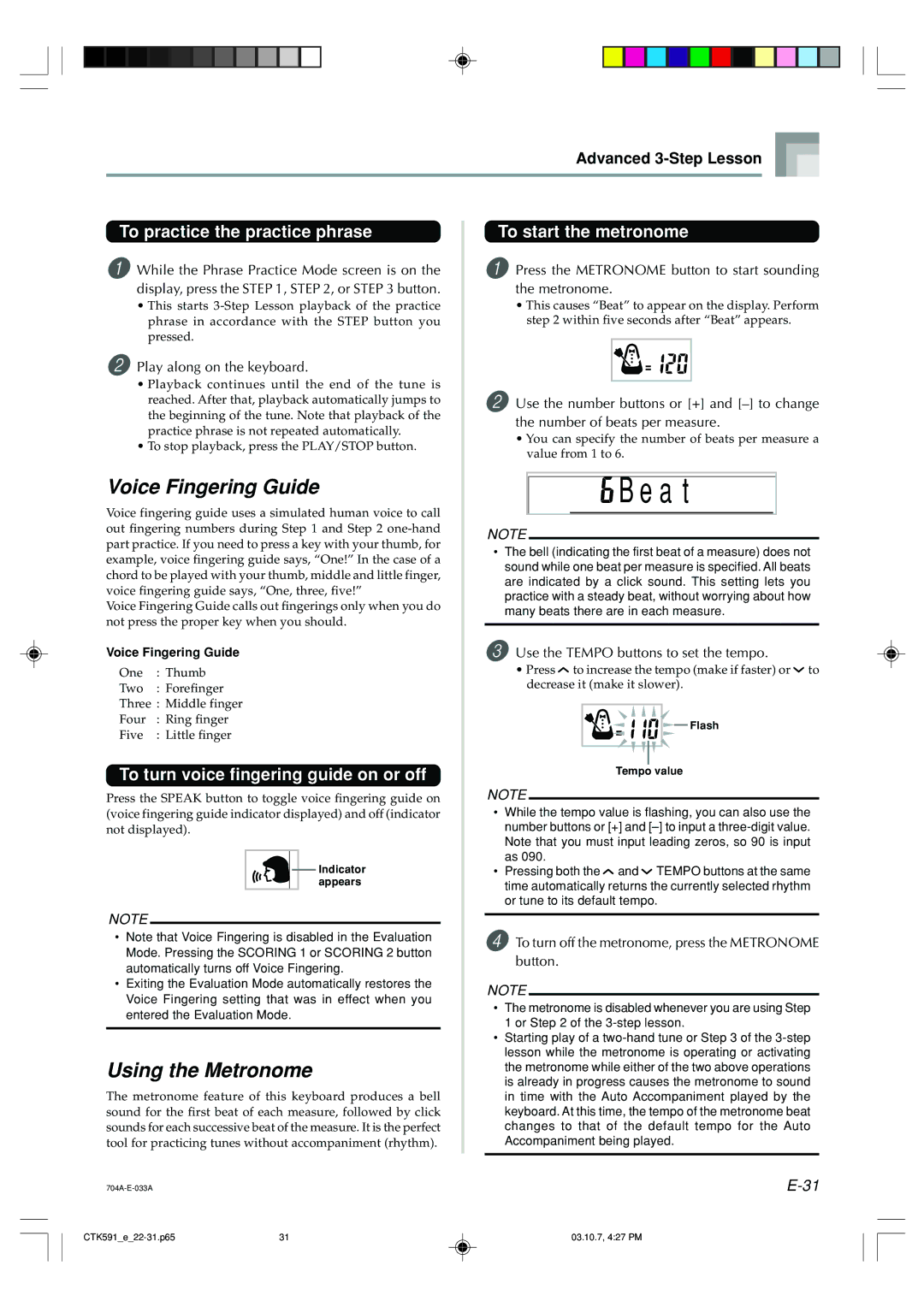
Advanced
To practice the practice phrase
1While the Phrase Practice Mode screen is on the display, press the STEP 1, STEP 2, or STEP 3 button.
•This starts
2Play along on the keyboard.
•Playback continues until the end of the tune is reached. After that, playback automatically jumps to the beginning of the tune. Note that playback of the practice phrase is not repeated automatically.
•To stop playback, press the PLAY/STOP button.
Voice Fingering Guide
Voice fingering guide uses a simulated human voice to call out fingering numbers during Step 1 and Step 2
Voice Fingering Guide calls out fingerings only when you do not press the proper key when you should.
Voice Fingering Guide
One : Thumb
Two : Forefinger
Three | : Middle finger |
Four | : Ring finger |
Five | : Little finger |
To turn voice fingering guide on or off
Press the SPEAK button to toggle voice fingering guide on (voice fingering guide indicator displayed) and off (indicator not displayed).
Indicator appears
NOTE
•Note that Voice Fingering is disabled in the Evaluation Mode. Pressing the SCORING 1 or SCORING 2 button automatically turns off Voice Fingering.
•Exiting the Evaluation Mode automatically restores the Voice Fingering setting that was in effect when you entered the Evaluation Mode.
Using the Metronome
The metronome feature of this keyboard produces a bell sound for the first beat of each measure, followed by click sounds for each successive beat of the measure. It is the perfect tool for practicing tunes without accompaniment (rhythm).
To start the metronome
1Press the METRONOME button to start sounding the metronome.
•This causes “Beat” to appear on the display. Perform step 2 within five seconds after “Beat” appears.
2Use the number buttons or [+] and
•You can specify the number of beats per measure a value from 1 to 6.
 B e a t
B e a t
NOTE
•The bell (indicating the first beat of a measure) does not sound while one beat per measure is specified. All beats are indicated by a click sound. This setting lets you practice with a steady beat, without worrying about how many beats there are in each measure.
3Use the TEMPO buttons to set the tempo.
•Press![]() to increase the tempo (make if faster) or
to increase the tempo (make if faster) or![]() to decrease it (make it slower).
to decrease it (make it slower).
![]()
![]()
![]()
![]() Flash
Flash
Tempo value
NOTE
•While the tempo value is flashing, you can also use the number buttons or [+] and
•Pressing both the![]() and
and![]() TEMPO buttons at the same time automatically returns the currently selected rhythm or tune to its default tempo.
TEMPO buttons at the same time automatically returns the currently selected rhythm or tune to its default tempo.
4To turn off the metronome, press the METRONOME button.
NOTE
•The metronome is disabled whenever you are using Step 1 or Step 2 of the
•Starting play of a
| ||
31 | 03.10.7, 4:27 PM |
